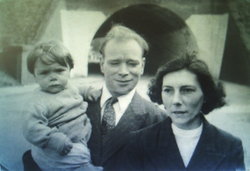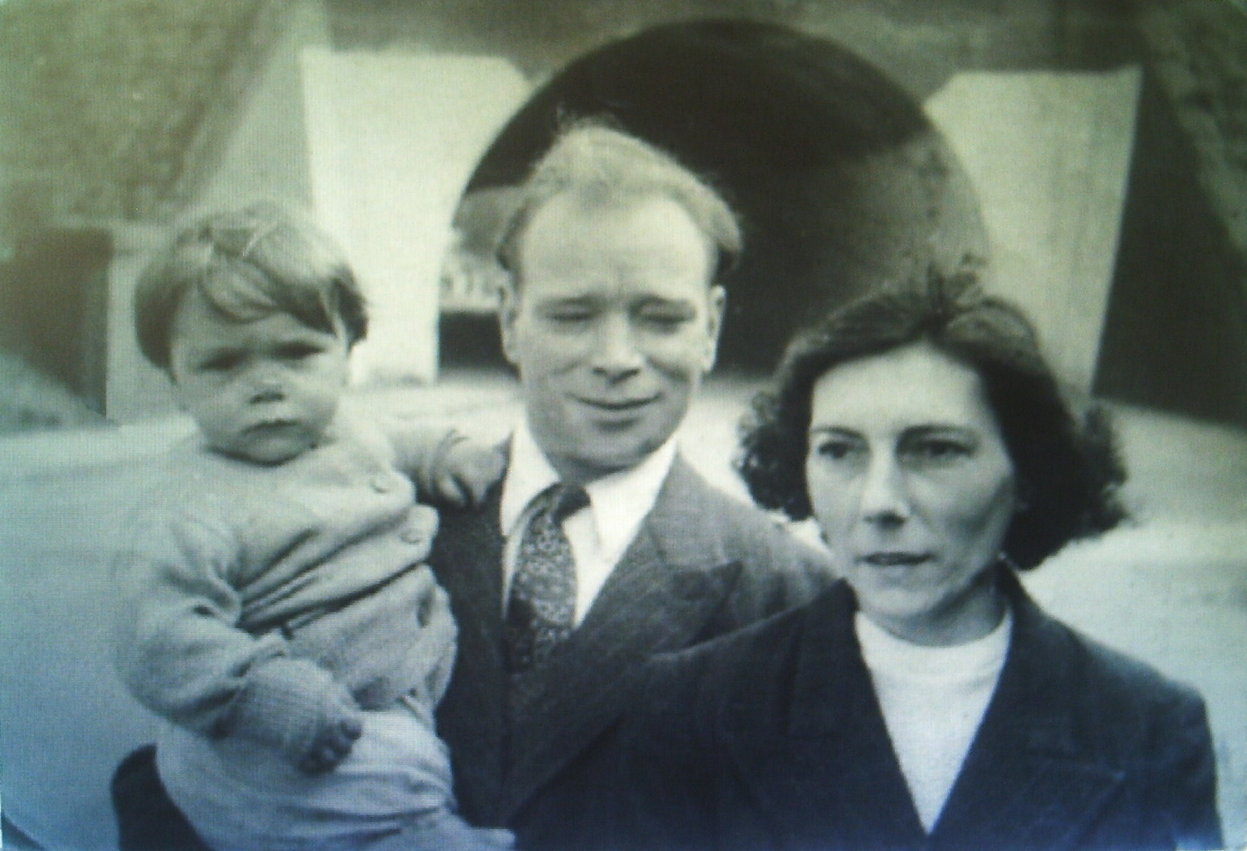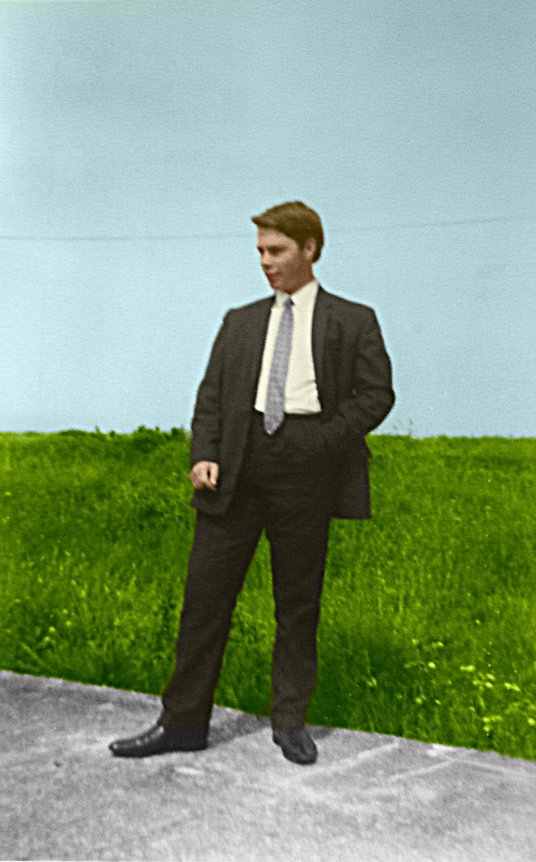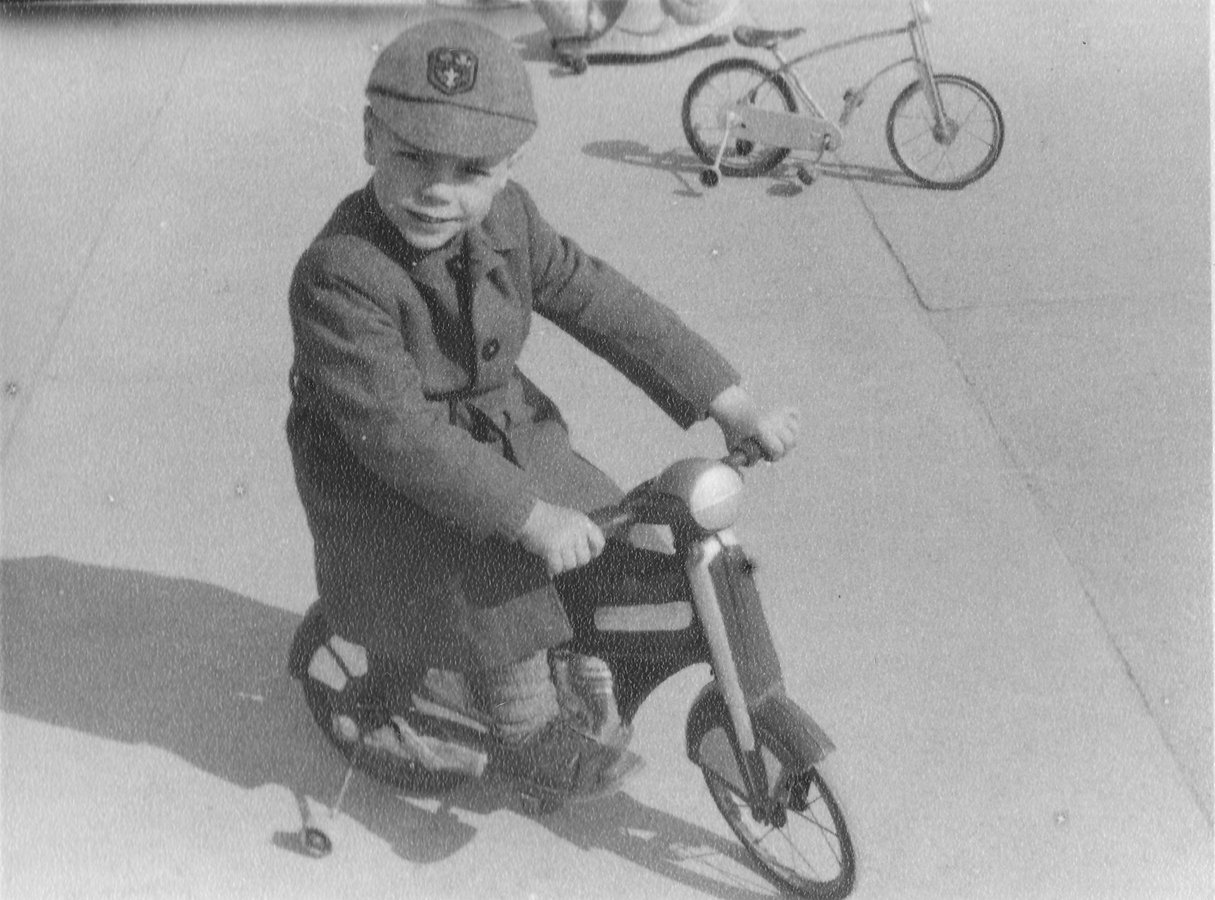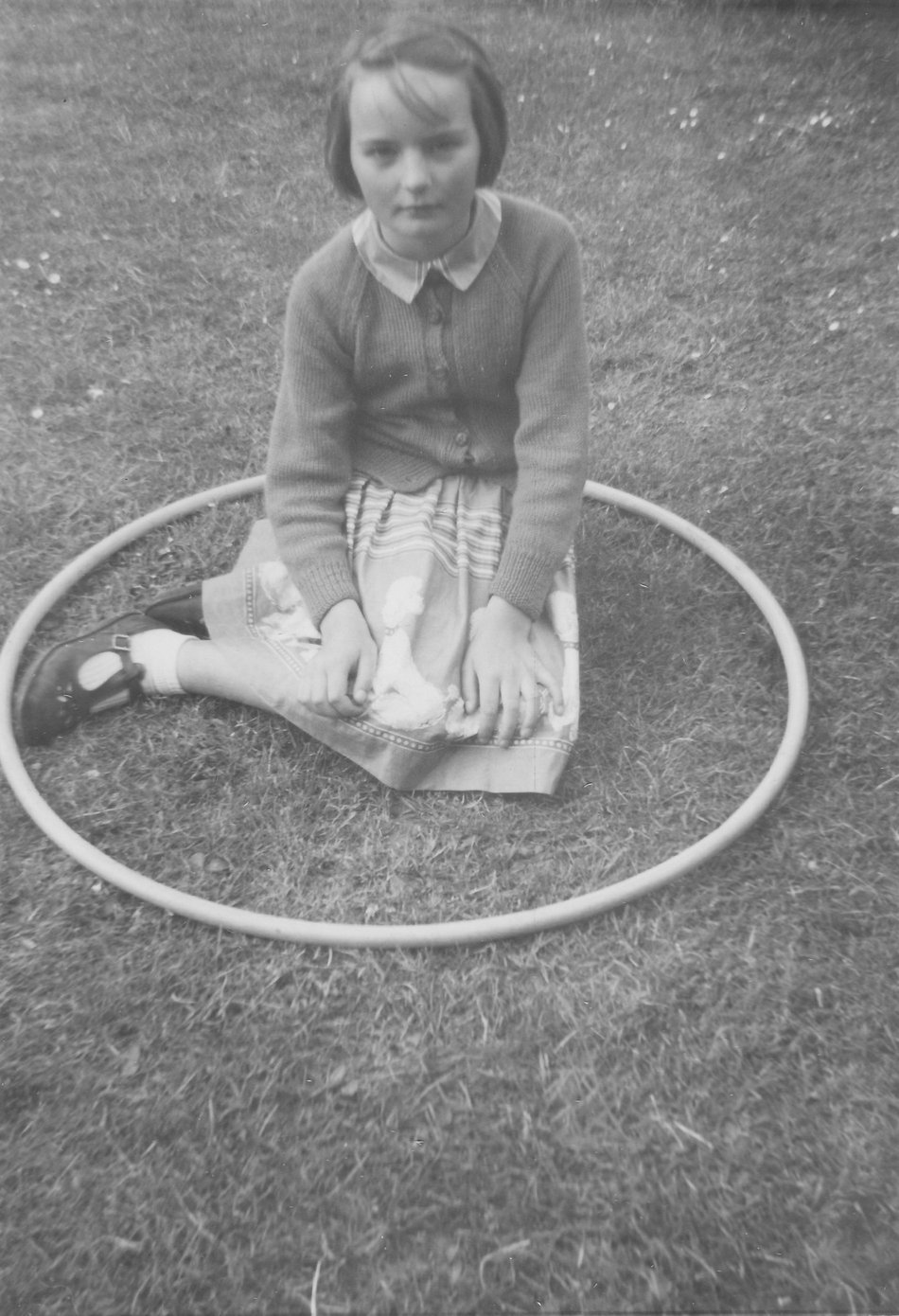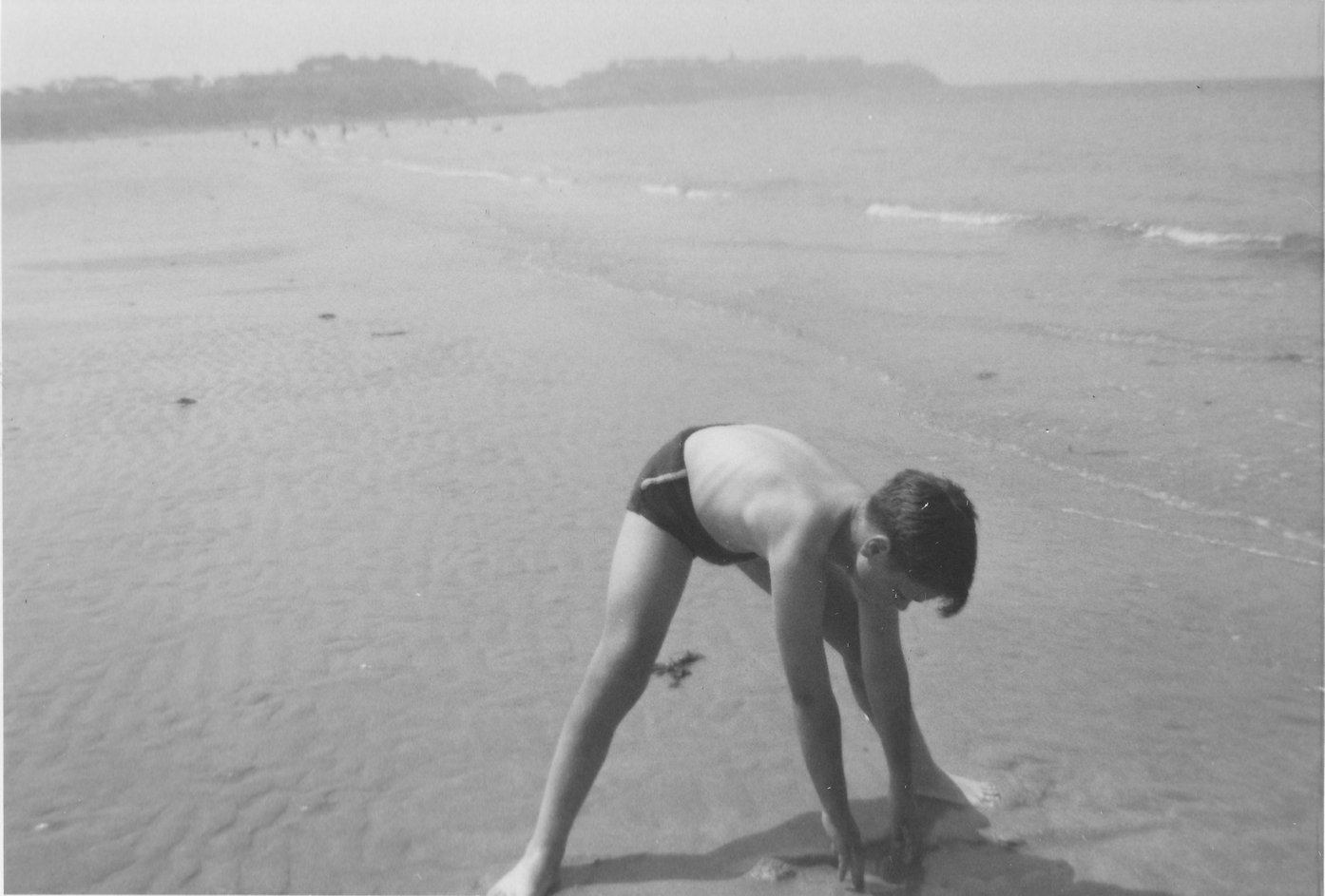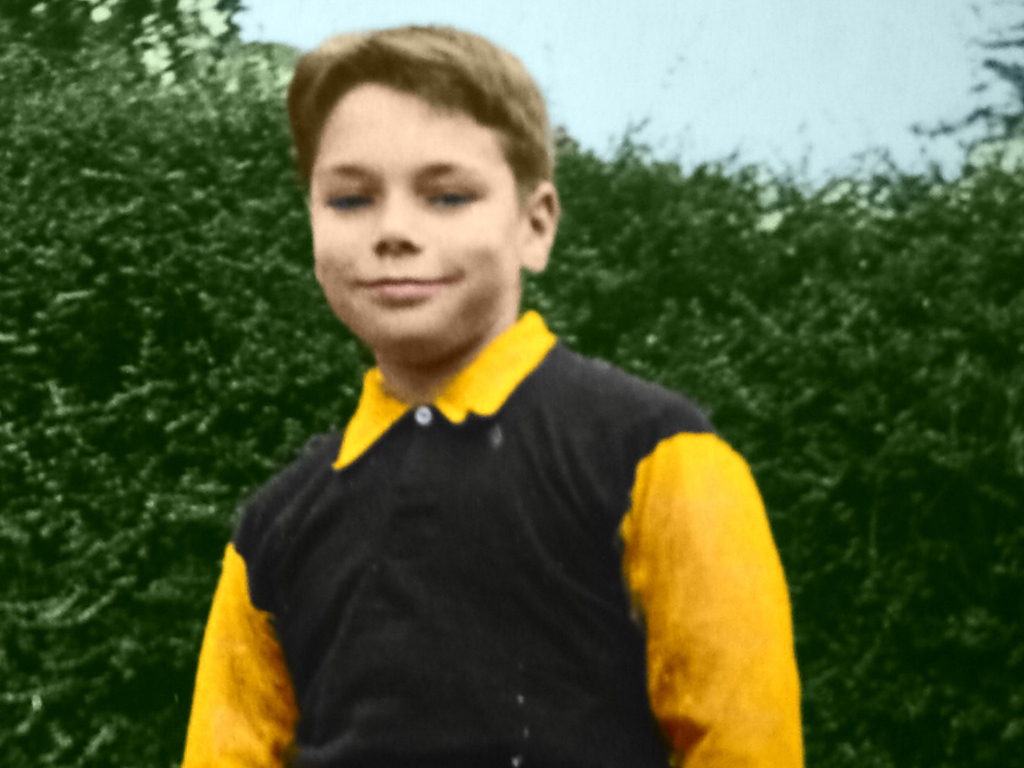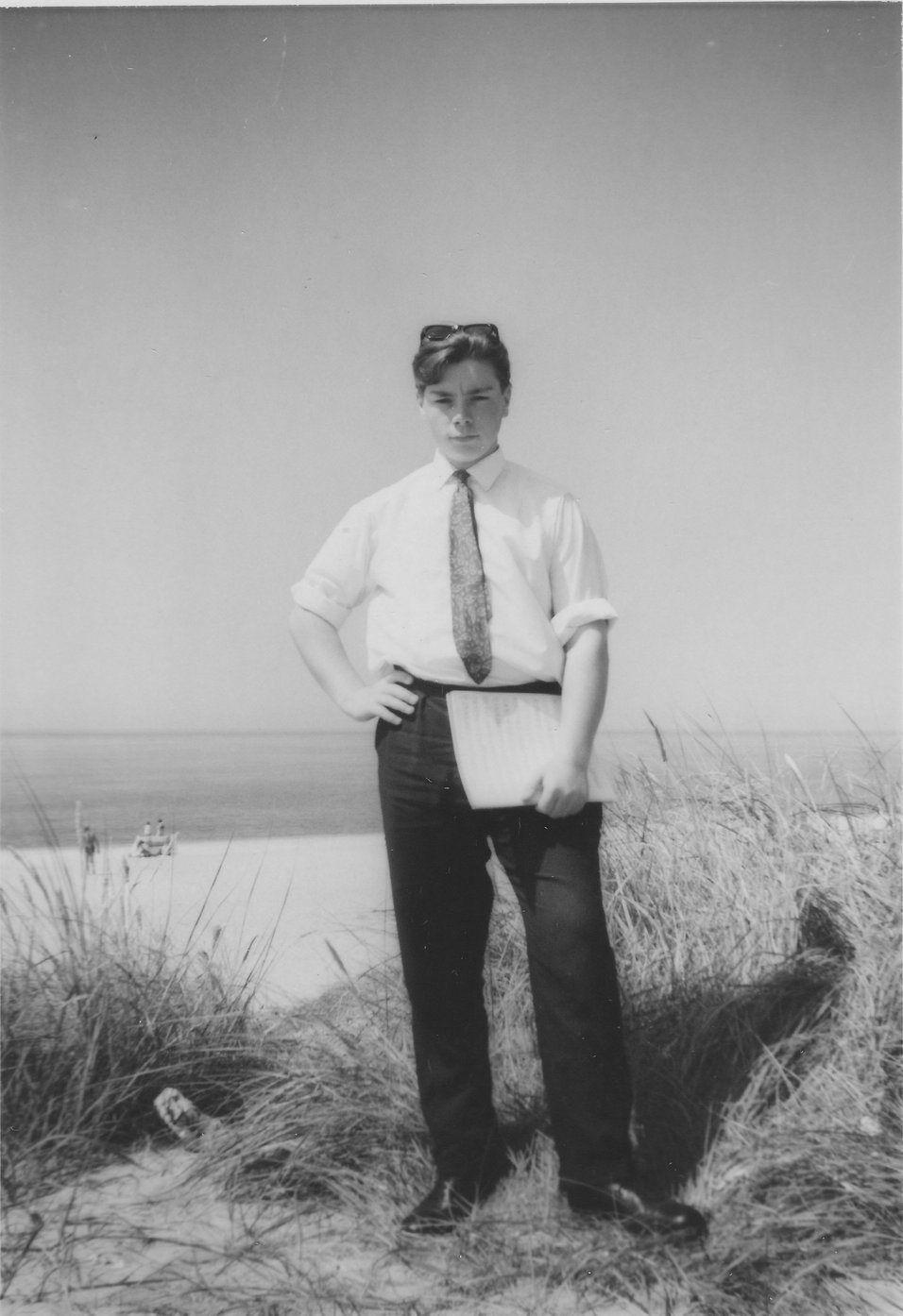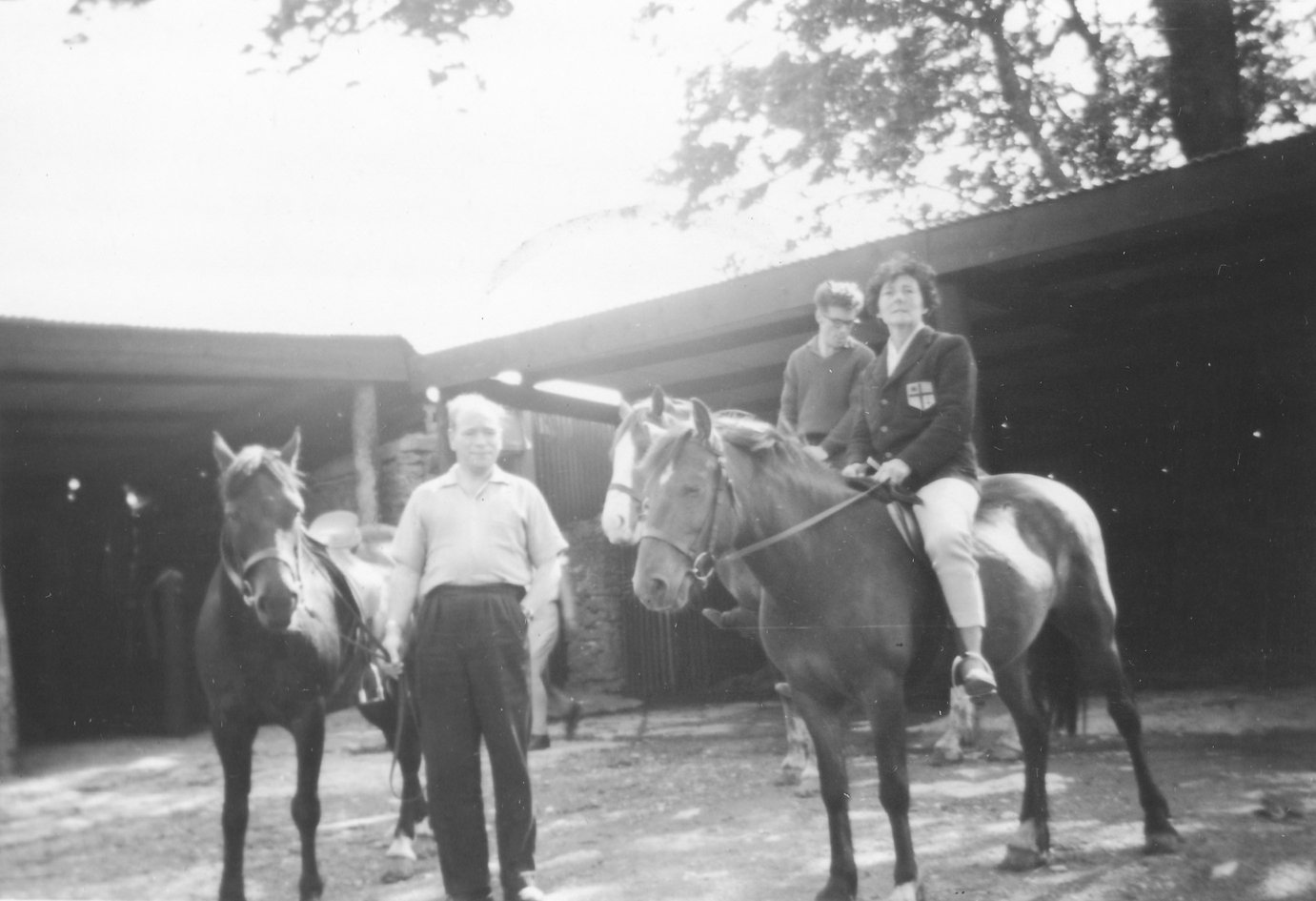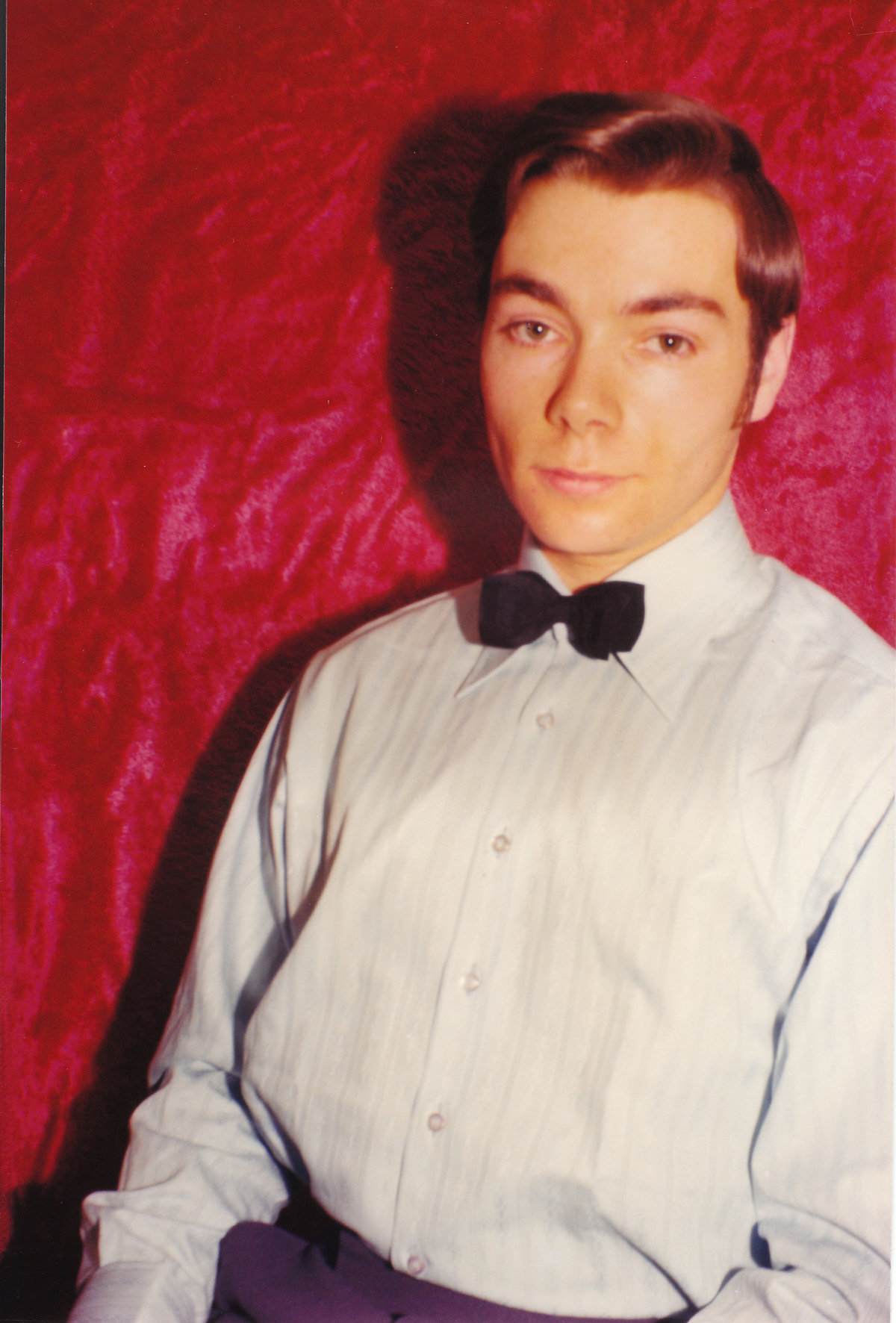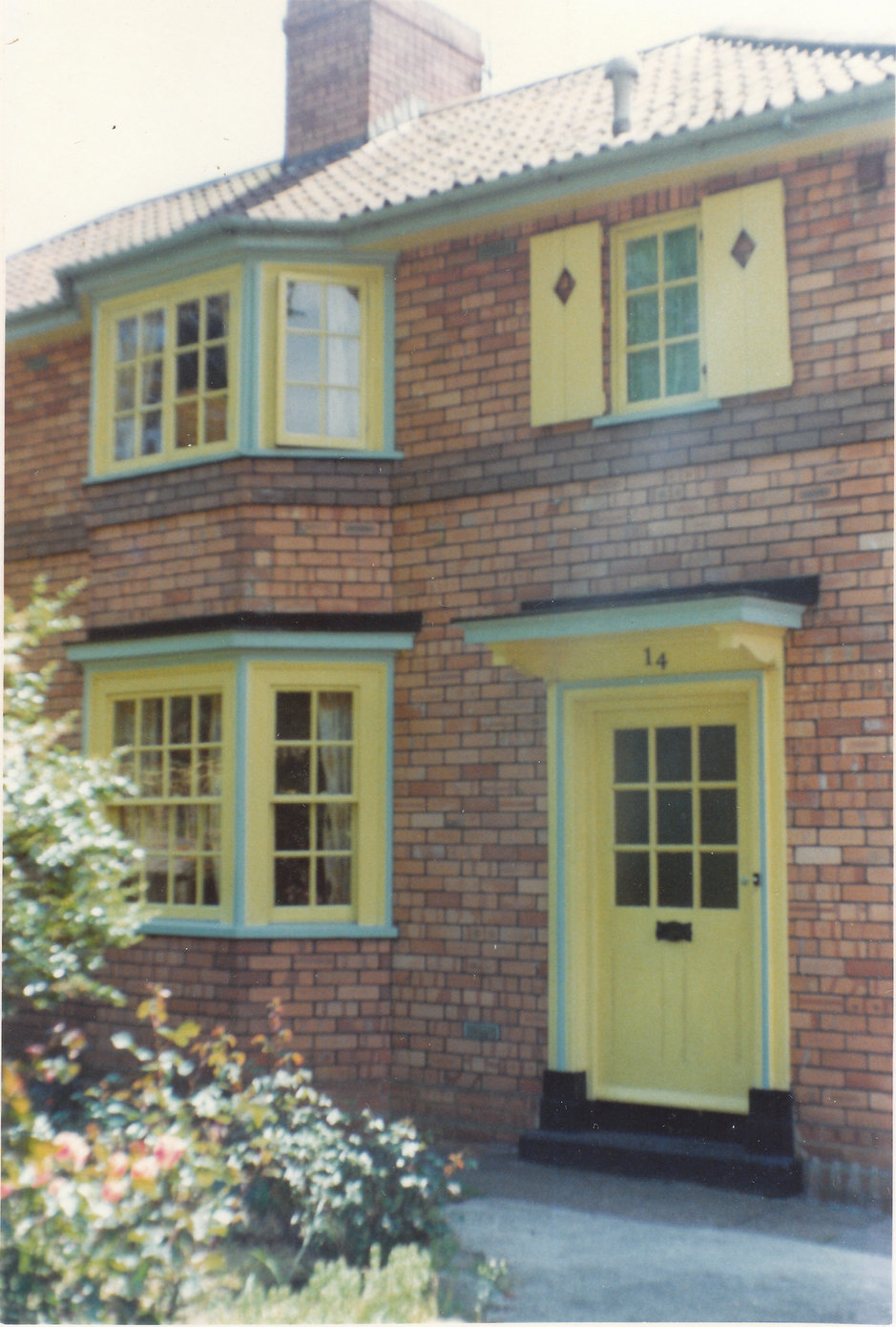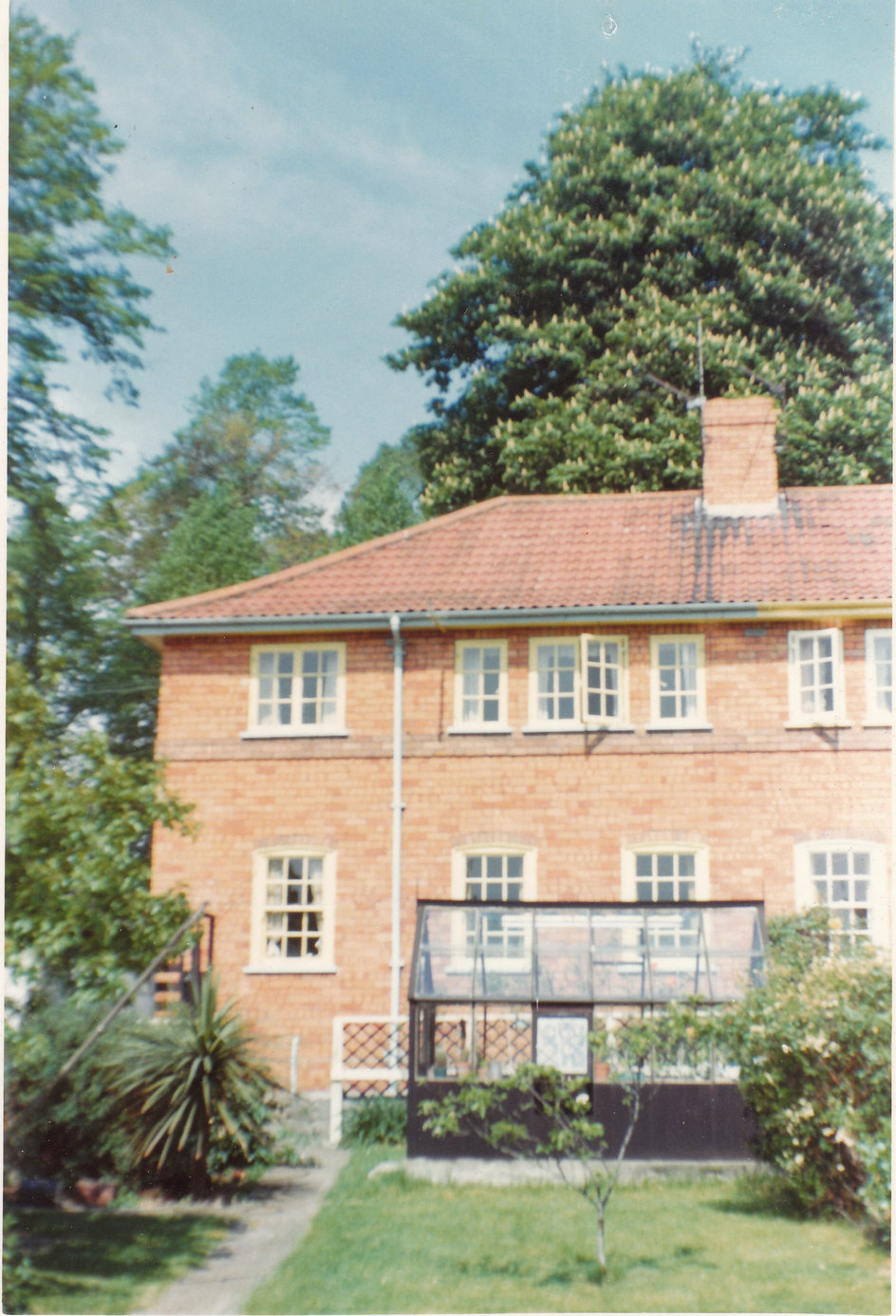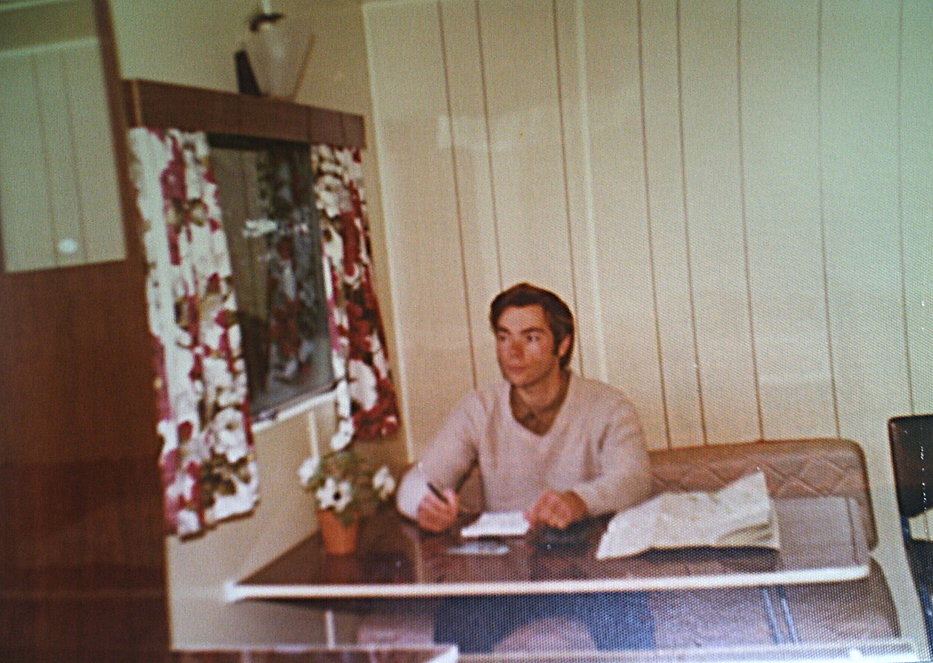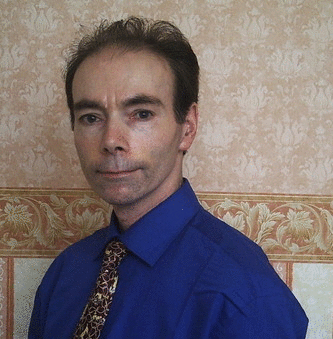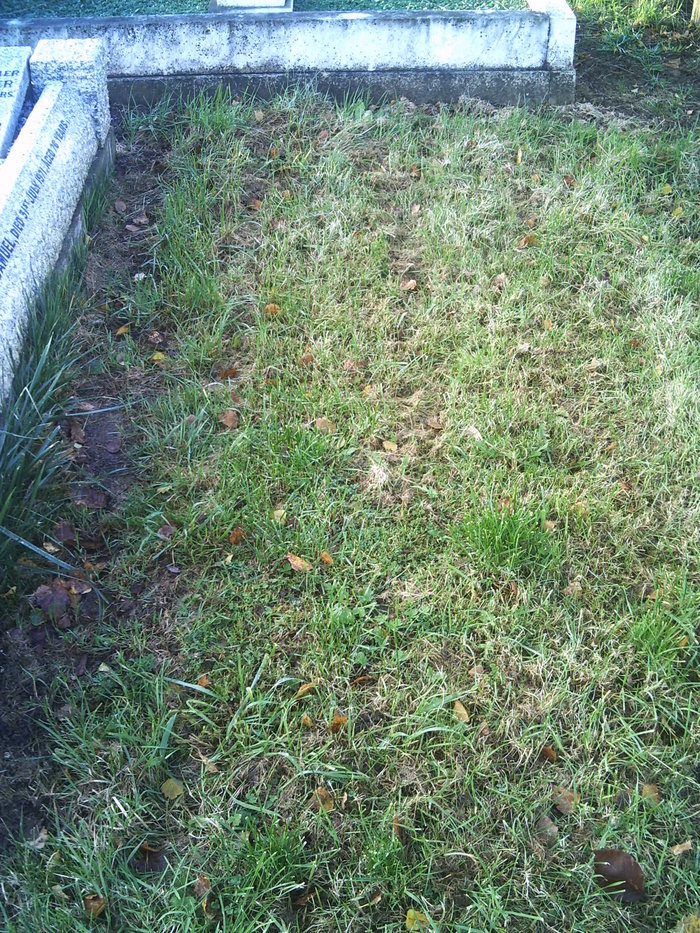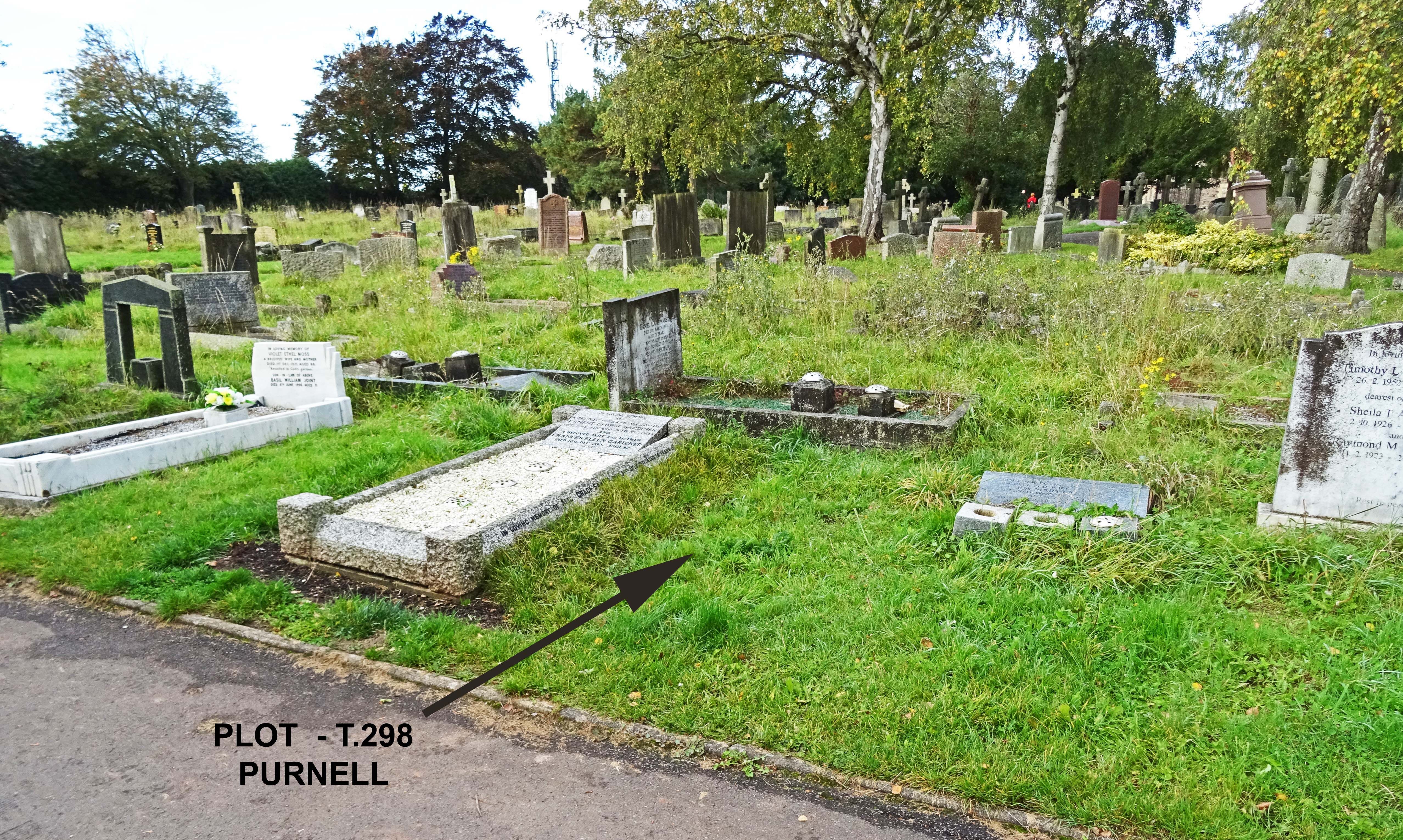He was born at Mount Hope, Bristol. His father came from a respectable working class family -- though cousins owned and were directors in the multi-million pound publishing company of Purnell and Sons founded by an ancestor -- and was always industrious and work minded. His mother, by contrast, had come from a middle class family which was kept short of money by a wealthy ogre of a grandfather who employed his family as well as other staff. He had founded the locally well-known Wood Funeral Directors. Timothy was baptized on April 19, 1953 at St. Werburgh's Church.
In the summer of 1954 the family spent a holiday at Exmouth, Devon, and his older mentally impaired brother, Robin, (caused by contracting meningitis as a baby) running away one day on this holiday became his first memory. A year later he could remember playing in the dusty street outside their home at 221A Mina Road, St. Werburghs, Bristol -- a lowly district imposed on his family by the Blitz. Their original home at Clifton, the most prestigious area of Bristol, was bombed in 1940.
Early in 1956 the family moved to a semi-rural paradise, as he considered it, at the newly built house of 13 Far Handstones, Warmley, near Bristol and he spent the May picking wild poppies in the field at the rear of their home and presenting them to his mother and another middle aged housewife called Mrs Louth who lived at the other end of this magical field. In return this lady would give him orange squash and comics to entertain him. He did not realize then that the magical attraction of wild poppies had been inherited from his mother. His oldest brother, Graham, explored the new green mysteries around their home by bicycle, riding and fishing in the pleasant countryside. Timothy knew he also went to the nearby school and quietly dreaded the thought that he soon would have to attend. But this never happened.
After only a year there was another world for him and this would remain for half his life. To be closer to his employment his father wanted to live on the northern side of Bristol and his parents were delighted to find a vacant house next to his maternal aunt's home and they moved there on a cold and damp day on January 4th, 1957. Soon he was sent to Embleton School, Southmead, where he was very happy. One day while swinging on the metal driveway gate a girl of almost 8 years came up to him and said: "Can I be your friend? My name is Alison." They were good friends until her father suddenly died when she was nearly 9 and some time afterwards was sent away to the Red Maids School for girls as a boarder. She had been close to her father and the shock had made her prowl around their home at night which annoyed her sometimes callous mother.
At Christmas 1961 he came softly down the stairs at about 4:30 a.m. thinking that Santa Claus had forgotten him because he had heard no sound although he had tried to stay awake. In the darkness of a dying coal fire he felt a very large parcel leaning against the brown leather sofa. He could not believe it. It was a bicycle and to him it was the most magical present in the world. And after his mother had taught him to ride it on the tree lined pavement outside their home he excitedly rode all over this area and sometimes into the city on it.
About this time he fell in love with music. He began reading about the classical composers from an old set of Arthur Mee encyclopedias in his home and then from books loaned from Southmead library by his school. This inspired him with a desire to be a musician and composer. His mother gave him some rudimentary lessons on a piano she and his father bought for him and then sent him to a music teacher called Mrs. Sumner. After only one lesson he composed a simple piece for piano and violin and secretly left it under other sheet music on a chair at his music teacher's home. By the next week when he returned for another lesson he had forgotten about this and was puzzled why she was smiling so much. Then with nervous embarrassment he remembered. His teacher said she had never known anyone else do this and he became her favourite pupil.
During his years at Embleton School he was always head pupil and found learning most easy. So much so that when he left at 11 years of age in July, 1963 after passing the 11 Plus examination for entry into a secondary school with the highest percentage in the southwest of England, shared with one other pupil whose academic parents had coached him, he was called into the headmaster's study. There he learned that he had collected more awards for merit at every subject than any other pupil since the school had opened about 9 years before. His favourite sports at this school were cricket and rounders and he enjoyed fights with other boys in the lesson breaks. At this time he discovered his mother's old Bibles and again without realizing this was another characteristic he had inherited from his mother took one she had acquired as a child to school with him and prayed every morning.
Then while the steady upsurge in socialism in the early 1960s was changing the larger world and spoiling it in its own image and making society increasingly degenerate his immediate world was changing even faster. After a sublimely adventurous holiday in the old France and Spain by aeroplane and family car in June 1963 his father on return suffered two heart attacks. Despite the choice of Fairfield Grammar School (the film star Cary Grant had once been a pupil) as it was too difficult by daily bus he reluctantly chose Lawrence Weston School. He really wanted to attend the prestigious and much more suitable Clifton College but the fees were too expensive for his parents.
He spent much of his spare time occupied in hobbies, including building his own observatory for astronomy in 1966, learning to play the Spanish guitar which he had been given as a present at Christmas the same year and performed with on the stage at school the following Christmas, and piano playing. At 16 he would play the Franz Liszt Piano Concerto No 1 in E Flat Major and other virtuoso piano music by him and Frederick Chopin which he found exciting and beautiful and considered an achievement in the concert hall at school. Johann Sebastian Bach's music he did not enjoy playing because though highly skilful it was much too rhythmic and unemotional.
At 15 he had taken violin lessons which he did not take to and loathed from an Italian music teacher called Mrs. Campbell (her married name) at Horfield who expressed amazement at his piano playing ability when she later taught him this. But he made the gradual decision to abandon any further ambition as a concert pianist because the constant routine of relentless practise for life would be too dull for his creative and imaginative mind. This was a period of anxious quandary and after finishing his education he later regretted not taking a teaching post and writing professionally in his free time but he lacked any firm guidance.
Timothy soon found himself walking all over Bristol trying to find employment of any kind. His father was amazed jobs were so extremely difficult to obtain. There were simply far too many people seeking too few jobs. Being creative minded and outstanding at English at school he tried writing and had a few articles published but he decided the only real option was military service. He took an examination for the Royal Marines and passed highly and immediately became a lieutenant. Later, when his father died suddenly, his mother wanted him to be home with her. So during the early 1970s he tried boxing in London as amateur boxing was a keen interest but decided his intellect was suited for something better.
Back at home he created a splendid garden and took local jobs. He was very nearly killed whilst youthfully riding a motorcycle very fast and trying to negotiate a sudden hairpin bend near the town of Tewkesbury. His other interests were old films, classical and romantic music, fine books and poetry. He adored Emily Bronte. He also drew portraits and painted in oils on canvases he had prepared himself. John Constable and Thomas Gainsborough were his favourite artists. Later he would admire the French Impressionists too. Claude Debussy and Maurice Ravel became his esteemed composers.
Every Christmas from 15 years of age he had made wines and beers to add with those bought by his parents and his father was proud of their quality. After his father died he undertook most of the festive cooking too. He always preferred genuine traditional English cuisine that was simple and good and despised the modern practice of using too many ingredients. He first started cooking at 6 and his family had always enjoyed this.
In early May, 1976 he and his mother went on a holiday to the Lake District, staying at Keswick, and he fell completely in love with this area. He climbed Mount Skiddaw and rowed all over Derwentwater. Then on his return there was a catastrophe. He contracted a serious fever. One night his temperature soared to 106 degrees F and his heart stopped beating. It was at this point all pain ceased as his spirit left his body and he was able to look down at himself in a state of unworldly sublime happiness. He realized he was dead and always a fighter he willed his heart to beat again and eventually with the greatest effort it did. He was drenched in perspiration. By this rare and curious experience he came to know life in spirit truly did seem to continue after physical death.
After his eventual recovery he decided with his mother to move away since all their close relatives and neighbours had died. In May 1988 the house was sold and they moved to Macduff in beautiful and remote northern Scotland by overnight sleeper train. They bought a 200 year old croft (small farm) high above the North Sea and a Honda Accord car to travel around. After seven years, because of a precarious pumped water supply and constant gales and on one occasion a severe hurricane, they moved to a rented cottage high on a hill near Gartly called Pine Tree Cottage. The shallow garden well was always a problem so they moved again into the village of Gartly. The pretty Victorian station house and tiered ornamental garden they rented was soon required by the owner for holiday purposes so they moved into the beautiful old small town of Forres, first at a house and then a flat.
After just over a year the owner of the flat wanted to sell it so they moved back to the adjoining station house at Gartly. They resided there almost four years before he decided to buy a motorhome and travel around which created many adventures that the gypsy nature in his mother particularly enjoyed. After a year he sold the motorhome to return to their hometown of Bristol to be close to the family grave where they both wanted to be buried.
In what would become their last home they moved in on March 7, 2005: a rented flat in Henbury, Bristol which was close to several parks he would walk in daily. Then after seven fairly contented years in which he looked after his aging mother while pursuing self employment and occupied in writing, the very worst catastrophe occurred when his beloved mother, whom he was profoundly close to, died suddenly from a severe stroke. She was given a very quiet Christian burial with her husband in the family grave as she wanted.
Despite intense grief he made sure all affairs were attended to properly with regard to his own wishes. This was not easy as there was no longer any close trustworthy person still living. During this lone period he read classical novels and much poetry -- mostly by the Bronte sisters. One of his favourite poems was "Encouragement" by Emily Bronte. He also wrote several poems himself which he had not done since a teenager.
Always highly moral with the heart of a child, the world changed around him. He loved kindness, truth, spiritual beauty and innocence and long walks were times of deep thinking. Baptized an Anglican Christian, from his early twenties he was also interested in Spiritualism and towards the end of his life he became a private Spiritualist.
It is with complete trust and pleasure I have appointed Find A Grave member #47679266 as caretaker to all my memorials after I have passed on.
All his poetry is at:
http://poetrypoem.com/cgi-bin/index.pl?&sitename=lettersofeternity&item=home
(Please turn off your volume if necessary)
He was born at Mount Hope, Bristol. His father came from a respectable working class family -- though cousins owned and were directors in the multi-million pound publishing company of Purnell and Sons founded by an ancestor -- and was always industrious and work minded. His mother, by contrast, had come from a middle class family which was kept short of money by a wealthy ogre of a grandfather who employed his family as well as other staff. He had founded the locally well-known Wood Funeral Directors. Timothy was baptized on April 19, 1953 at St. Werburgh's Church.
In the summer of 1954 the family spent a holiday at Exmouth, Devon, and his older mentally impaired brother, Robin, (caused by contracting meningitis as a baby) running away one day on this holiday became his first memory. A year later he could remember playing in the dusty street outside their home at 221A Mina Road, St. Werburghs, Bristol -- a lowly district imposed on his family by the Blitz. Their original home at Clifton, the most prestigious area of Bristol, was bombed in 1940.
Early in 1956 the family moved to a semi-rural paradise, as he considered it, at the newly built house of 13 Far Handstones, Warmley, near Bristol and he spent the May picking wild poppies in the field at the rear of their home and presenting them to his mother and another middle aged housewife called Mrs Louth who lived at the other end of this magical field. In return this lady would give him orange squash and comics to entertain him. He did not realize then that the magical attraction of wild poppies had been inherited from his mother. His oldest brother, Graham, explored the new green mysteries around their home by bicycle, riding and fishing in the pleasant countryside. Timothy knew he also went to the nearby school and quietly dreaded the thought that he soon would have to attend. But this never happened.
After only a year there was another world for him and this would remain for half his life. To be closer to his employment his father wanted to live on the northern side of Bristol and his parents were delighted to find a vacant house next to his maternal aunt's home and they moved there on a cold and damp day on January 4th, 1957. Soon he was sent to Embleton School, Southmead, where he was very happy. One day while swinging on the metal driveway gate a girl of almost 8 years came up to him and said: "Can I be your friend? My name is Alison." They were good friends until her father suddenly died when she was nearly 9 and some time afterwards was sent away to the Red Maids School for girls as a boarder. She had been close to her father and the shock had made her prowl around their home at night which annoyed her sometimes callous mother.
At Christmas 1961 he came softly down the stairs at about 4:30 a.m. thinking that Santa Claus had forgotten him because he had heard no sound although he had tried to stay awake. In the darkness of a dying coal fire he felt a very large parcel leaning against the brown leather sofa. He could not believe it. It was a bicycle and to him it was the most magical present in the world. And after his mother had taught him to ride it on the tree lined pavement outside their home he excitedly rode all over this area and sometimes into the city on it.
About this time he fell in love with music. He began reading about the classical composers from an old set of Arthur Mee encyclopedias in his home and then from books loaned from Southmead library by his school. This inspired him with a desire to be a musician and composer. His mother gave him some rudimentary lessons on a piano she and his father bought for him and then sent him to a music teacher called Mrs. Sumner. After only one lesson he composed a simple piece for piano and violin and secretly left it under other sheet music on a chair at his music teacher's home. By the next week when he returned for another lesson he had forgotten about this and was puzzled why she was smiling so much. Then with nervous embarrassment he remembered. His teacher said she had never known anyone else do this and he became her favourite pupil.
During his years at Embleton School he was always head pupil and found learning most easy. So much so that when he left at 11 years of age in July, 1963 after passing the 11 Plus examination for entry into a secondary school with the highest percentage in the southwest of England, shared with one other pupil whose academic parents had coached him, he was called into the headmaster's study. There he learned that he had collected more awards for merit at every subject than any other pupil since the school had opened about 9 years before. His favourite sports at this school were cricket and rounders and he enjoyed fights with other boys in the lesson breaks. At this time he discovered his mother's old Bibles and again without realizing this was another characteristic he had inherited from his mother took one she had acquired as a child to school with him and prayed every morning.
Then while the steady upsurge in socialism in the early 1960s was changing the larger world and spoiling it in its own image and making society increasingly degenerate his immediate world was changing even faster. After a sublimely adventurous holiday in the old France and Spain by aeroplane and family car in June 1963 his father on return suffered two heart attacks. Despite the choice of Fairfield Grammar School (the film star Cary Grant had once been a pupil) as it was too difficult by daily bus he reluctantly chose Lawrence Weston School. He really wanted to attend the prestigious and much more suitable Clifton College but the fees were too expensive for his parents.
He spent much of his spare time occupied in hobbies, including building his own observatory for astronomy in 1966, learning to play the Spanish guitar which he had been given as a present at Christmas the same year and performed with on the stage at school the following Christmas, and piano playing. At 16 he would play the Franz Liszt Piano Concerto No 1 in E Flat Major and other virtuoso piano music by him and Frederick Chopin which he found exciting and beautiful and considered an achievement in the concert hall at school. Johann Sebastian Bach's music he did not enjoy playing because though highly skilful it was much too rhythmic and unemotional.
At 15 he had taken violin lessons which he did not take to and loathed from an Italian music teacher called Mrs. Campbell (her married name) at Horfield who expressed amazement at his piano playing ability when she later taught him this. But he made the gradual decision to abandon any further ambition as a concert pianist because the constant routine of relentless practise for life would be too dull for his creative and imaginative mind. This was a period of anxious quandary and after finishing his education he later regretted not taking a teaching post and writing professionally in his free time but he lacked any firm guidance.
Timothy soon found himself walking all over Bristol trying to find employment of any kind. His father was amazed jobs were so extremely difficult to obtain. There were simply far too many people seeking too few jobs. Being creative minded and outstanding at English at school he tried writing and had a few articles published but he decided the only real option was military service. He took an examination for the Royal Marines and passed highly and immediately became a lieutenant. Later, when his father died suddenly, his mother wanted him to be home with her. So during the early 1970s he tried boxing in London as amateur boxing was a keen interest but decided his intellect was suited for something better.
Back at home he created a splendid garden and took local jobs. He was very nearly killed whilst youthfully riding a motorcycle very fast and trying to negotiate a sudden hairpin bend near the town of Tewkesbury. His other interests were old films, classical and romantic music, fine books and poetry. He adored Emily Bronte. He also drew portraits and painted in oils on canvases he had prepared himself. John Constable and Thomas Gainsborough were his favourite artists. Later he would admire the French Impressionists too. Claude Debussy and Maurice Ravel became his esteemed composers.
Every Christmas from 15 years of age he had made wines and beers to add with those bought by his parents and his father was proud of their quality. After his father died he undertook most of the festive cooking too. He always preferred genuine traditional English cuisine that was simple and good and despised the modern practice of using too many ingredients. He first started cooking at 6 and his family had always enjoyed this.
In early May, 1976 he and his mother went on a holiday to the Lake District, staying at Keswick, and he fell completely in love with this area. He climbed Mount Skiddaw and rowed all over Derwentwater. Then on his return there was a catastrophe. He contracted a serious fever. One night his temperature soared to 106 degrees F and his heart stopped beating. It was at this point all pain ceased as his spirit left his body and he was able to look down at himself in a state of unworldly sublime happiness. He realized he was dead and always a fighter he willed his heart to beat again and eventually with the greatest effort it did. He was drenched in perspiration. By this rare and curious experience he came to know life in spirit truly did seem to continue after physical death.
After his eventual recovery he decided with his mother to move away since all their close relatives and neighbours had died. In May 1988 the house was sold and they moved to Macduff in beautiful and remote northern Scotland by overnight sleeper train. They bought a 200 year old croft (small farm) high above the North Sea and a Honda Accord car to travel around. After seven years, because of a precarious pumped water supply and constant gales and on one occasion a severe hurricane, they moved to a rented cottage high on a hill near Gartly called Pine Tree Cottage. The shallow garden well was always a problem so they moved again into the village of Gartly. The pretty Victorian station house and tiered ornamental garden they rented was soon required by the owner for holiday purposes so they moved into the beautiful old small town of Forres, first at a house and then a flat.
After just over a year the owner of the flat wanted to sell it so they moved back to the adjoining station house at Gartly. They resided there almost four years before he decided to buy a motorhome and travel around which created many adventures that the gypsy nature in his mother particularly enjoyed. After a year he sold the motorhome to return to their hometown of Bristol to be close to the family grave where they both wanted to be buried.
In what would become their last home they moved in on March 7, 2005: a rented flat in Henbury, Bristol which was close to several parks he would walk in daily. Then after seven fairly contented years in which he looked after his aging mother while pursuing self employment and occupied in writing, the very worst catastrophe occurred when his beloved mother, whom he was profoundly close to, died suddenly from a severe stroke. She was given a very quiet Christian burial with her husband in the family grave as she wanted.
Despite intense grief he made sure all affairs were attended to properly with regard to his own wishes. This was not easy as there was no longer any close trustworthy person still living. During this lone period he read classical novels and much poetry -- mostly by the Bronte sisters. One of his favourite poems was "Encouragement" by Emily Bronte. He also wrote several poems himself which he had not done since a teenager.
Always highly moral with the heart of a child, the world changed around him. He loved kindness, truth, spiritual beauty and innocence and long walks were times of deep thinking. Baptized an Anglican Christian, from his early twenties he was also interested in Spiritualism and towards the end of his life he became a private Spiritualist.
It is with complete trust and pleasure I have appointed Find A Grave member #47679266 as caretaker to all my memorials after I have passed on.
All his poetry is at:
http://poetrypoem.com/cgi-bin/index.pl?&sitename=lettersofeternity&item=home
(Please turn off your volume if necessary)
